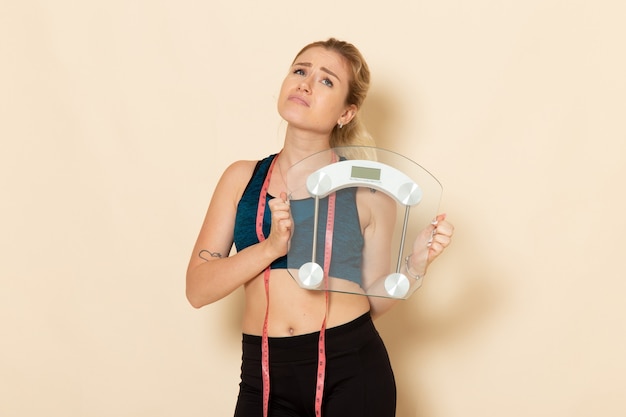
If you’re trying to lose weight, you might think cutting calories is the way to go, right? Not necessarily, according to Terry Fairclough, a personal trainer and co-founder of Your Body Programme. As a personal trainer, I’ve heard plenty of different ideas on what the best diet for weight loss might be. Is it about counting calories? Should we opt for low-fat, low-carb, or high-protein diets? Maybe fasting or eating small, frequent meals is the answer?
Creating a large calorie deficit can lead to weight loss but not necessarily fat loss. While many opinions might have merit depending on body types, goals, and activity levels, one thing is clear: under-eating is not the solution.
We all know someone who drastically cuts calories to get in shape quickly. Sure, the weight might fall off initially, but this approach might not be ideal. While reducing calories can make you lose weight, it doesn’t guarantee you’re losing fat, which is usually the main goal.
Today’s Western diets tend to be larger than necessary. Many people could benefit from a slight calorie reduction because they may be overeating. However, it’s a common misconception that eating less is the only way to shed pounds, and that’s just not true.
When we eat, our bodies break down carbohydrates into a sugar called glucose, which fuels our cells. If we don’t immediately use this glucose, our muscles and liver store it as glycogen, which is glucose linked with water. When we reduce calorie intake, we mainly lose stored carbohydrates and water, not fat.
Interestingly, if you maintain a calorie deficit for too long, your body might respond by holding onto fat and breaking down protein instead. Protein is crucial for burning fat since it’s biologically active, meaning we burn more fat to fuel muscles at rest when we have enough protein. Therefore, it’s vital to consume sufficient calories comprising all three macronutrients: fats, carbs, and protein.
For those who believe ditching fat will lead to fat loss, here’s some insight: Fat is an essential long-term energy source, offering more than double the energy of carbohydrates or protein. Fat is also stored in muscle fibers for easy access during exercise. Without enough fat, you won’t have the energy needed to burn unwanted body fat.
Cutting calories and nutrients too harshly can lead to deficiencies impacting bodily functions, especially the immune, liver, and digestive systems, potentially causing health issues or slowing metabolism. Problems from under-eating include fatigue, malnutrition, osteoporosis, anemia, hormonal issues, and fertility problems. Extreme calorie cuts also stress the body, releasing cortisol, a stress hormone that initially may cause weight loss but, in the long run, can lead to fat gain.
Chronic high cortisol levels force the body to conserve fat and break down protein, causing the metabolism to slow and encouraging fat storage, especially around the belly. This stress response also affects the thyroid and digestive systems, leading to inefficient nutrient absorption and a hit to overall health and training results. Poor sleep is another consequence, as it triggers adrenaline release to balance blood sugar, further disrupting health and weight loss goals.
Even bodybuilders who restrict calories to get lean often face issues when not done correctly. Over-restricting can backfire, sending the body into “famine mode” and storing more fat when calories increase again. It’s crucial to consume the right balance of calories, carbs, fat, and protein tailored to your body type, goals, and lifestyle.
I developed the Your Body Programme to help people identify their specific calorie needs based on their body type. Understanding your body’s requirements helps optimize health and metabolism. Our program, which focuses on balanced nutrition instead of calorie cuts, shows that increasing calories actually supports fat loss.
To support fat loss and maintain energy, eat plenty of lean proteins like beef, chicken, eggs, fish, or plant-based options like legumes, tofu, and tempeh. Incorporate healthy carbs from fruits, vegetables, sweet potatoes, quinoa, whole grains, and healthy fats from sources like avocados, nuts, seeds, and olive oil.




